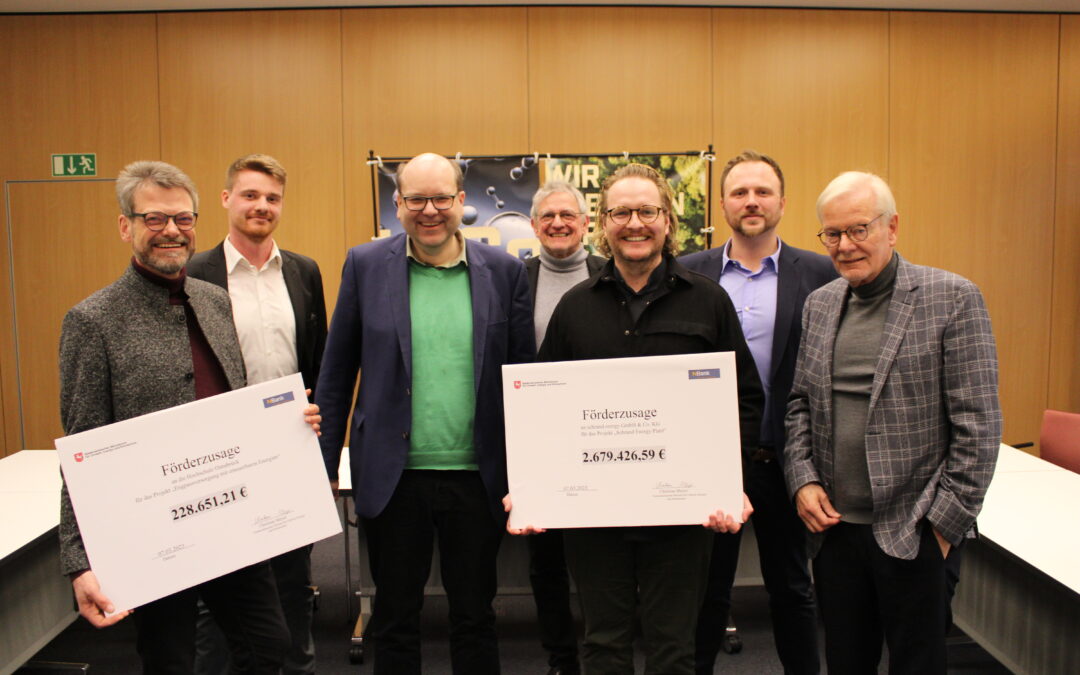
Schrand Energy Plant
PROJEKTE
 Quelle: MU
Quelle: MU
Prof. Dr. -Ing. Reckzügel (Professor der Hochschule Osnabrück, Professor für innovative Energietechnik und Thermische Energietechnik), Patrick Wösten (Hochschule Osnabrück, wissenschaftlicher Mitarbeiter in dem Projekt), Minister Meyer, Jörg Wilke (Geschäftsführer „Northern Institute of Thinking“) (zweite Reihe), Timo Schrand (Geschäftsführer von schrand.energy GmbH & Co. KG), Paul Hoffmann (Projektleiter Wasserstoff bei schrand.energy GmbH & Co. KG.) (zweite Reihe), Uwe Bartels (Landesminister a. D.)
Autarkes Energiesystem im Gebäude
In Essen (Oldenburg) plant das Unternehmen schrand.energy GmbH & Co. KG einen CO2-neutralen und energieautarken, firmeneigenen Neubau. Das Konzept namens Schrand Energy Plant wird von vornherein als modulare, reproduzierbare und skalierbare Gesamtlösung entwickelt, um es auf andere Gebäude übertragen zu können.
Die Schrand Energy Plant nutzt eine Photovoltaikanlage, um den jeweiligen Firmenstandort mit Erneuerbarer Energie versorgen zu können. Die überschüssige Energie wird anschließend in einer PEM-Elektrolyseeinheit verwendet, um Wasser in Wasser- und Sauerstoff zu spalten, diese Gase in Druckgastanks zwischenzuspeichern und dann bei Bedarf in einer Wasserstoffbrennstoffzelle in elektrischen Strom und Wärme umzuwandeln. Die Energy Plant soll so ein Gesamtsystem aus Energiespeicher, Elektrolyseur, Brennstoffzelle und Wasserstofftank bieten, das an den jeweiligen Verbraucher angepasst werden kann.
Am 7. März übergab der Niedersächsische Umwelt- und Energieminister Christian Meyer die Förderung. Schrand.energy erhält für die Umsetzung eine Förderung von rund 2,7 Mio. Euro und der Kooperationspartner Hochschule Osnabrück 230.000 Euro.
Umwelt- und Energieminister Christian Meyer: „Erneuerbare Energien sind unerlässlich, wenn wir das Klima schützen wollen. Manchmal haben wir jedoch große Mengen, ohne sie speichern zu können. Das Projekt schlägt zwei Fliegen mit einer Klatsche, indem es Solarenergie und Wasserstofftechnologie vereint: Überschüssige Solarenergie kann so weiterverwendet, Wasserstoff mit erneuerbaren Energien hergestellt werden. Das schont das Klima und den Geldbeutel und stärkt die heimische Wirtschaft mit günstiger, sauberer Energie.“

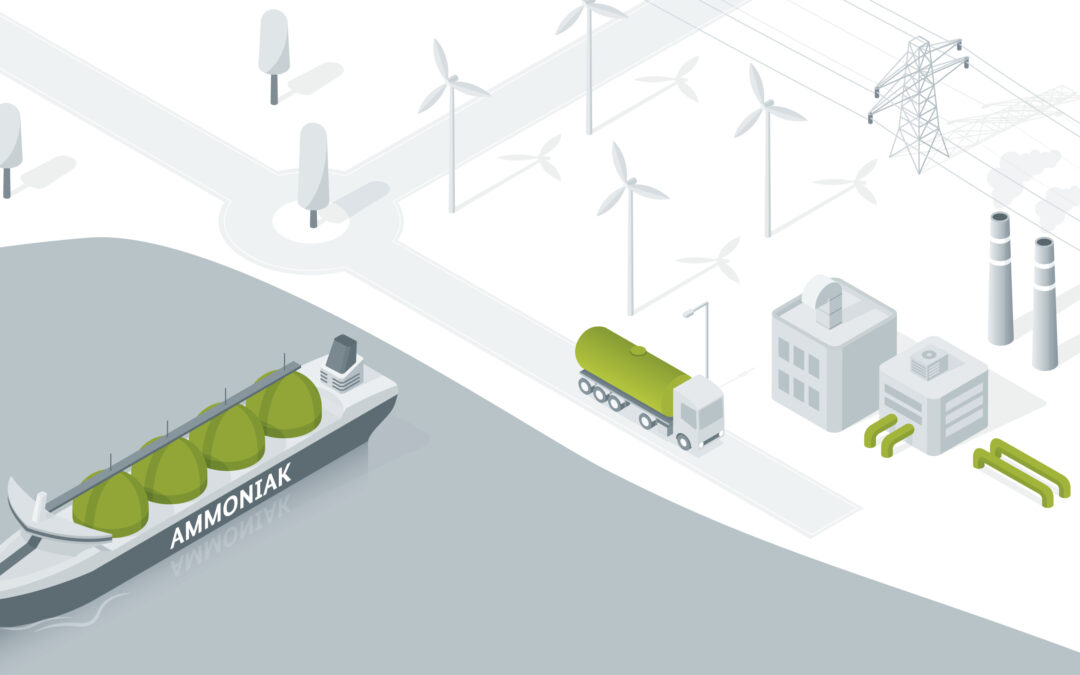
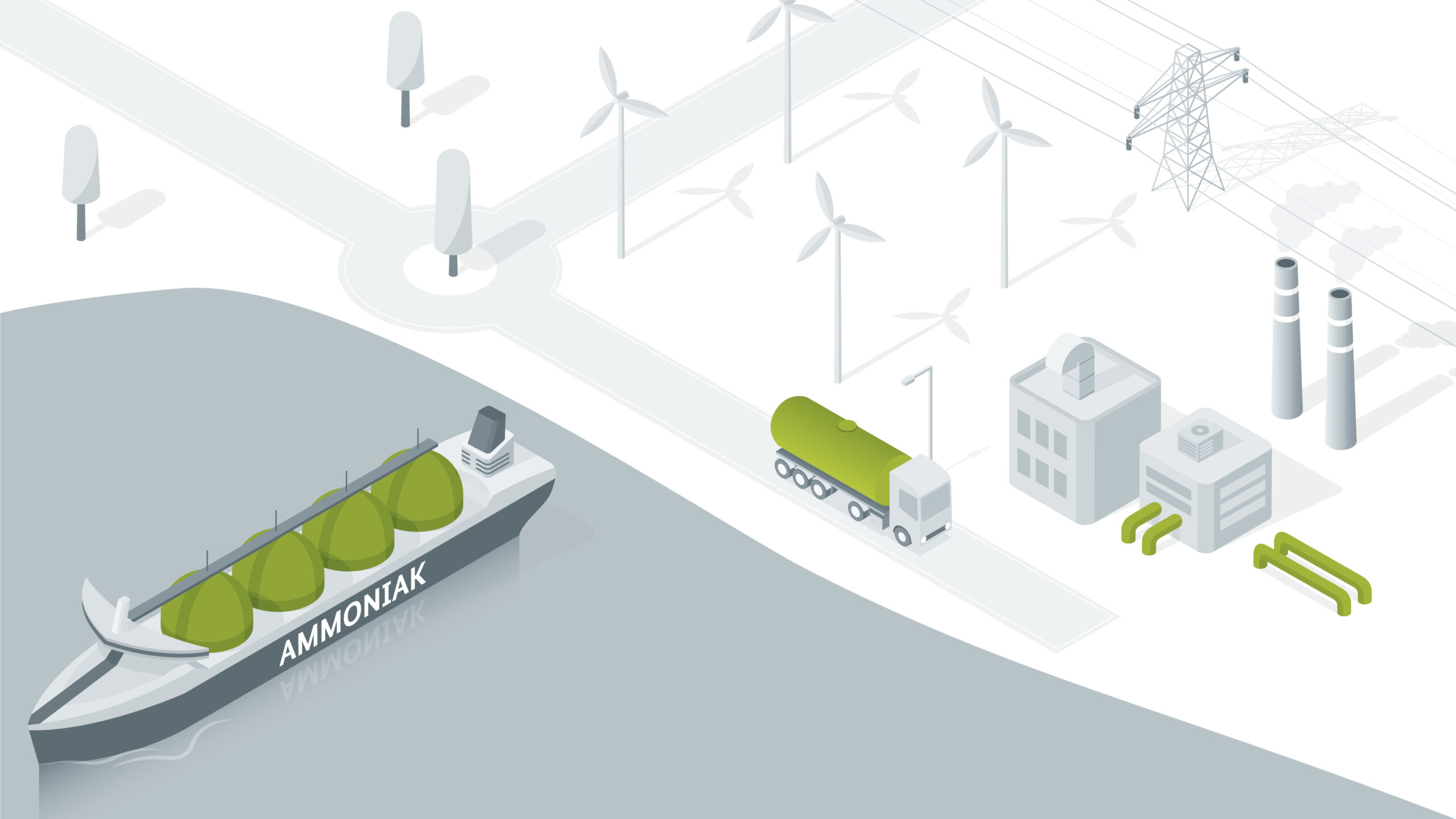
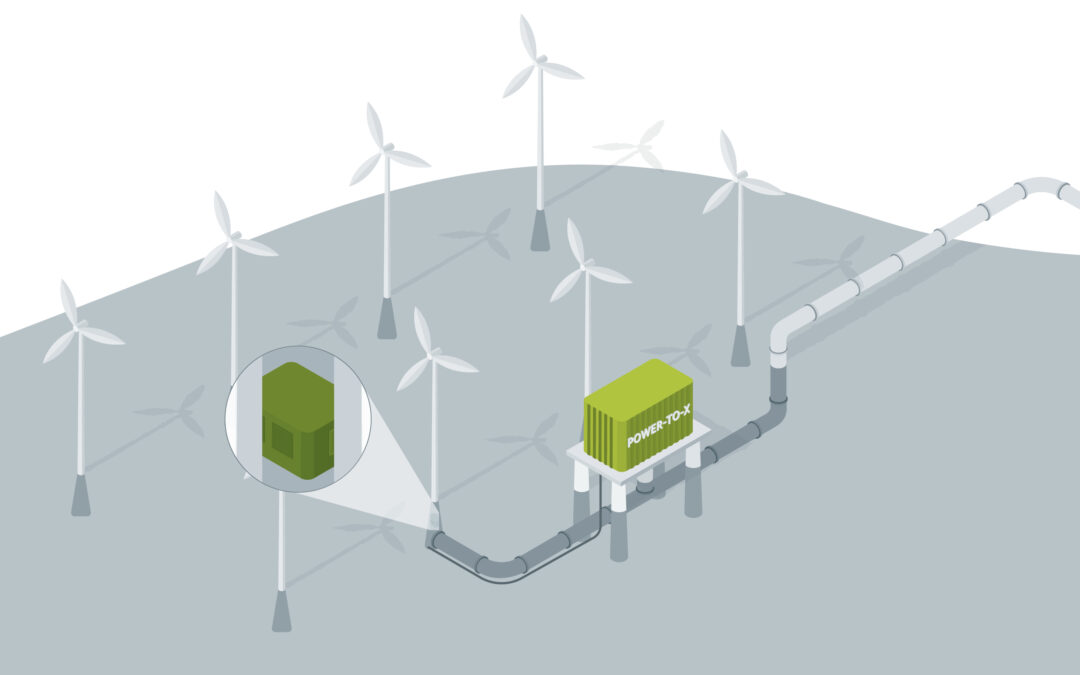
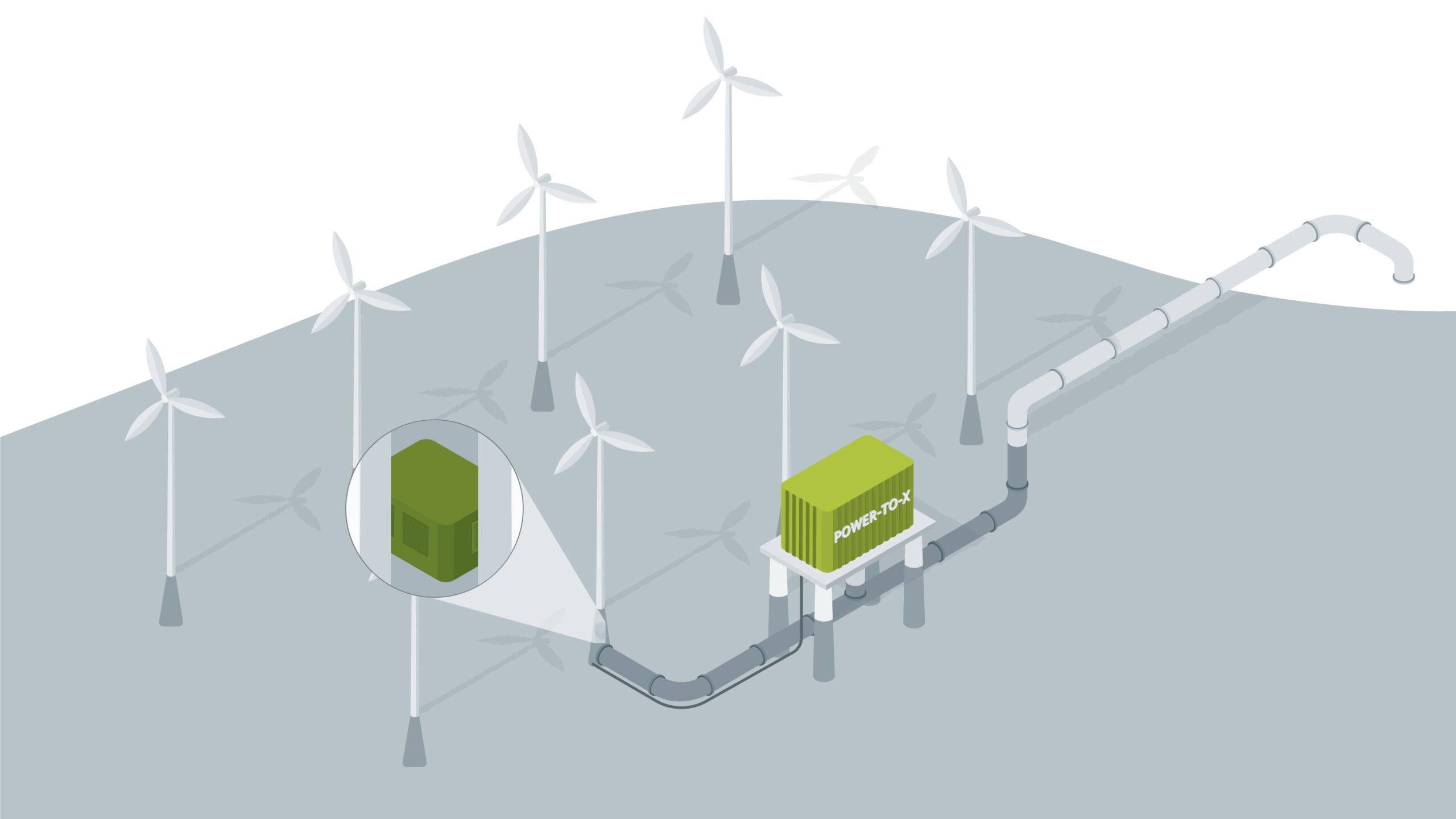
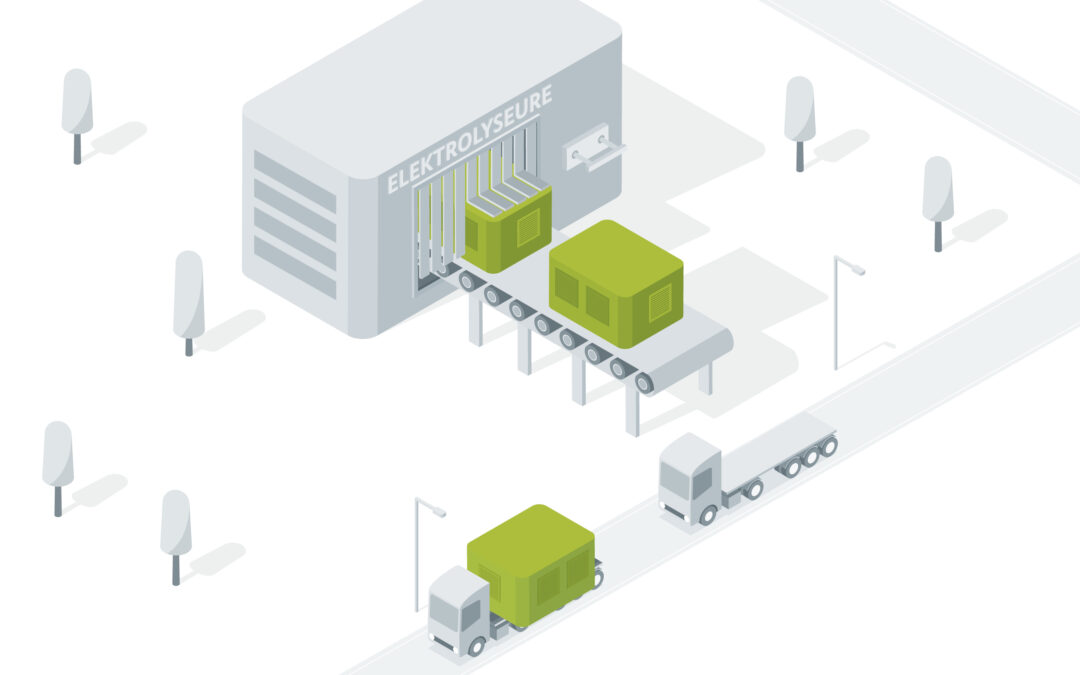



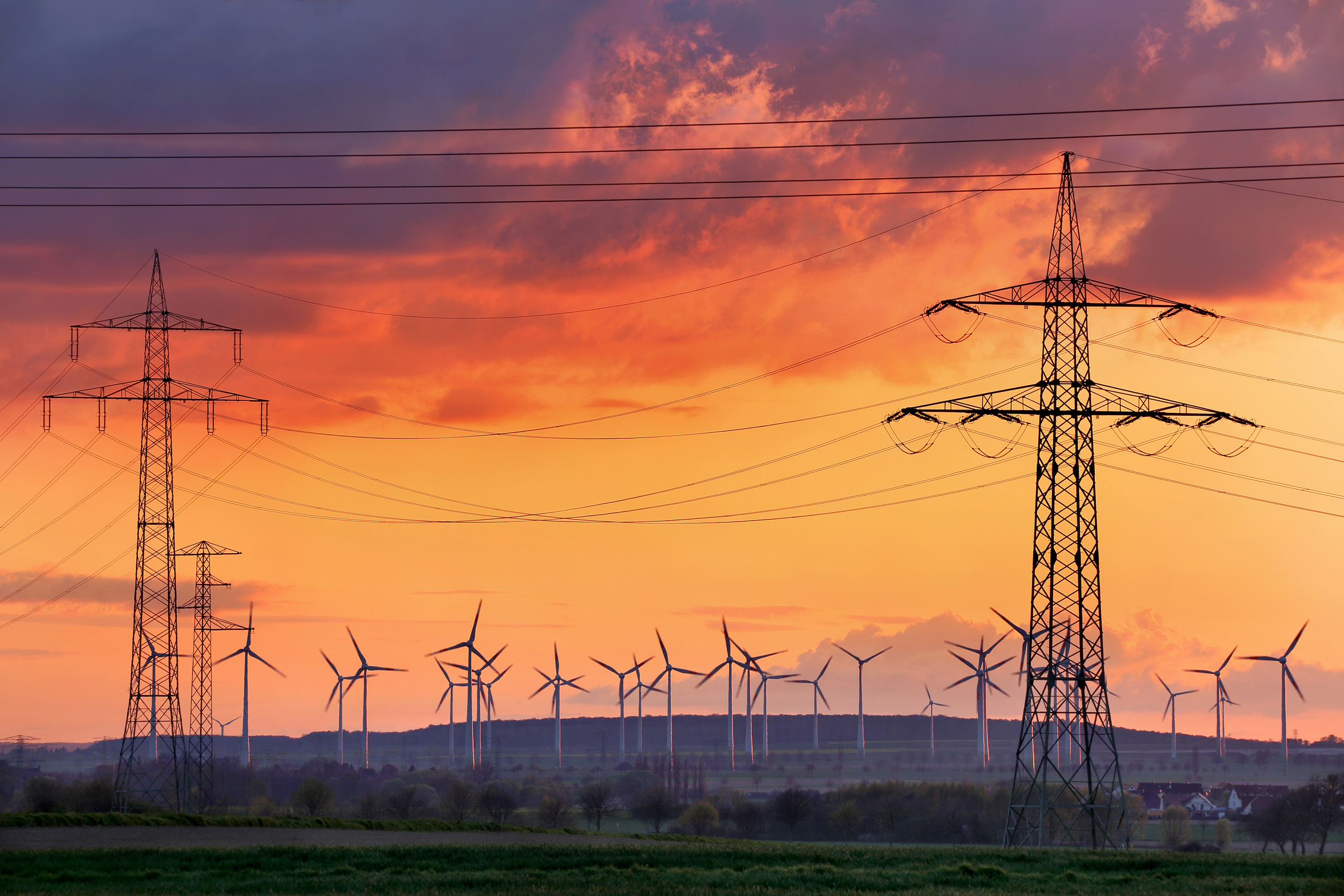
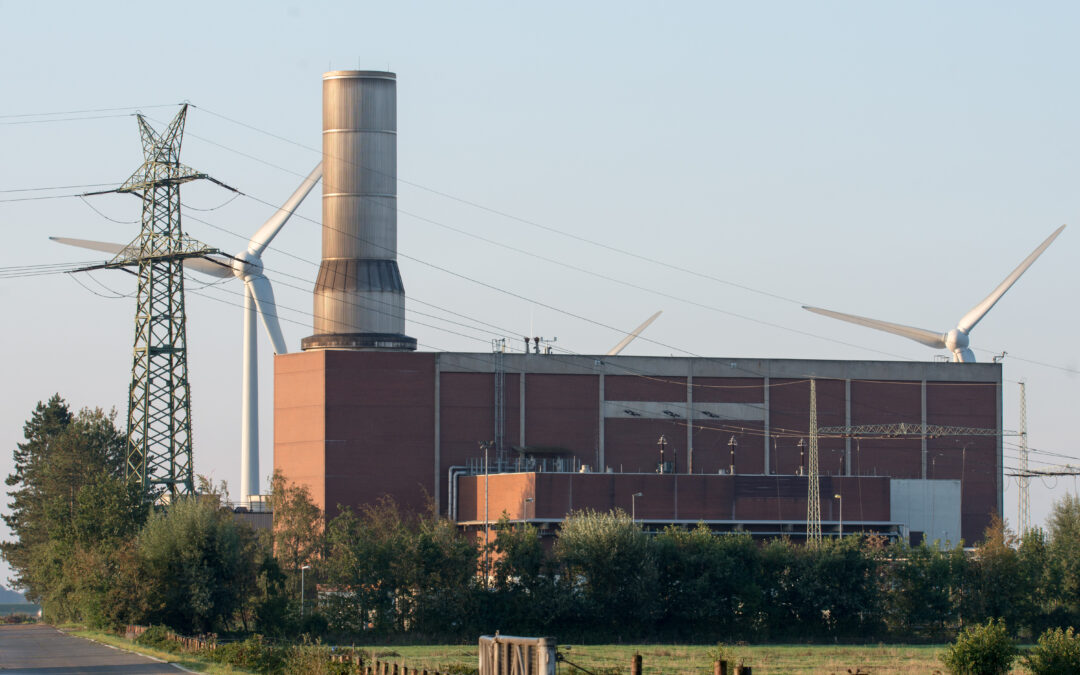




Neueste Kommentare